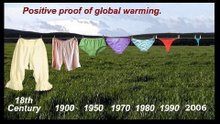If you happen to find a renewable energy article in a magazine or on the Internet, more likely than not it will be about a system costing thousands of dollars. It’s rare to find a story about a modest system, unless it’s for a remote cabin or camper. I started this blog, in part, to compensate for the lack of information about small systems. Entries are the result of my own experience and training, and what I’ve learned from others. I’ve received valuable information and advice from on-line discussion forums, and I contribute when the topic is within my area of knowledge and experience. As a result of one of my responses to a question on a photovoltaic system (PV) forum, I received a very nice message recently. Here is a portion of that message:
“A person was looking for feedback and everyone, I thought, was being kind of rude to him because of his limited budget. You were the only one that responded with any useful information.”
Internet discussion forums provide a good opportunity for novices to ask questions, and to get some pretty good free advice from experts in just about any area of renewable energy, but they seem to cater mainly to those with big budgets. Sadly, participants can sometimes be rude to beginners with small budgets. That attitude is just plain wrong. It is especially important to help those with limited budgets. As our energy needs increase, and natural resources decrease, the demand for small systems will skyrocket. The wealthy will install large systems of course, but the average person will conclude that it makes more sense to conserve electricity and use a small system than to install a large system and continue to waste energy.
Getting by with a small system is becoming increasingly easy to do since appliances tend to be much more energy efficient than their older counterparts, and going small doesn’t necessarily mean doing without. Eliminating phantom loads, and using mechanical replacements for things like clocks and doorbells, help to lower a household’s energy needs. Switching to compact fluorescent lights can play a large role in reducing the energy needs of a home.
It’s easy to overlook the benefits of starting small. A small system is a great learning experience. By monitoring system performance, the user gains valuable insight to how a larger system works. An increased awareness of the need to conserve energy is another important benefit of a small system. With that awareness you’re more likely to conserve energy, even when connected to the grid. A small PV system can be good for the environment in other ways as well. Replacing the equivalent grid-supplied energy with that from just 2 or 3 photovoltaic (PV) panels can actually reduce the amount of carbon dioxide entering the atmosphere by 1000 pounds each year. Just think of the effect thousands of small systems would have on the atmosphere!
Size does matter. Small systems will someday do more for the environment than all of the large systems combined. Kenya, for example, has more solar PV systems per capita than any other country in the world, and most of those systems are under 25-watts.
Those who invest in renewable energy systems, even small ones, are less likely to need to be rescued in the event of an emergency. If you’re someone people turn to for advice, don’t discourage, ridicule, or ignore those with limited budgets. Show them how to achieve the best possible results with the limited resources available to them. By helping others you’re also helping the planet, and therefore yourself and future generations.
Check previous posts on this blog for system design and implementation ideas. I've provided links to some of my favorite sources of components and information.
Solar John
Friday, April 06, 2007
Subscribe to:
Post Comments (Atom)








No comments:
Post a Comment